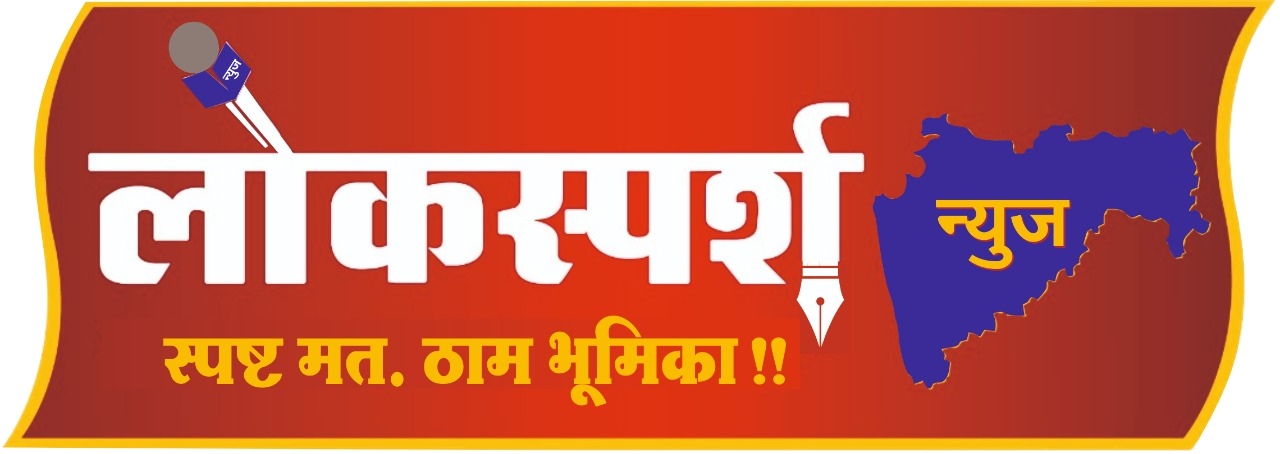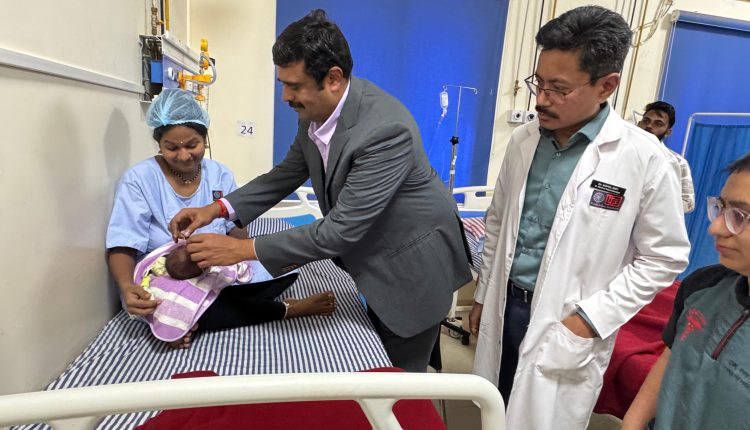“A Newborn of Hope… and a Future Born in the Hills”
Loksparsh News Network
Omprakash Chunarkar,
Gadchiroli – Where maps end, human needs do not. In the mountain-clad terrain of Surjagad, in the village of Hedri, nestled within the shadows of Naxalism, the tribal communities have long experienced the state machinery as nothing more than a distant decree. But when a hospital rises amidst such darkness, it does not merely serve as a center for healthcare — it becomes a temple of trust. The Lloyds Kali Ammal Memorial Hospital, established by Lloyds Metals and Energy Limited, did not just record the birth of its 200th baby today — it marked the 200th time that life, hope, and possibility were reborn in a land long ignored. In Hedri, where infrastructure itself is a dream, the delivery of advanced medical services is not merely a matter of corporate social responsibility — it is the very embodiment of human values. This is not just a maternity ward — it is the reflection of trust in the eyes of a mother who, for the first time in her life, was asked, “What do you need?” When the hospital was inaugurated in November 2023, the villagers in and around Hedri knew only one way to give birth — amidst danger, pain, and uncertainty. But when the first child was born here on January 29, 2024, it wasn’t just a birth — it was the beginning of a journey that transformed pain into possibility. Today, with the birth of the 200th baby, it is not merely a number — it is a declaration that remoteness does not mean neglect, and the life born in these hills is more precious than any mineral mined from beneath them. The presence of Managing Director B. Prabhakaran was not a ceremonial act but a vow taken from the heart — where logistics and profits take a back seat, and a mother’s teardrop becomes the center of the mission. When the 200th baby cried out today in LKAM Hospital, it wasn’t just the sound of new life, but a quiet, thundering message to the system — that where once death was destiny, today life is registered and celebrated. With an average of over 11 deliveries per month, this hospital isn’t just a facility — it’s a lifeline, a promise fulfilled. The 30-bed multi-specialty hospital is now set to expand to 100 beds, with additional departments planned, and every patient who walks in is offered consultation, medicines, surgery, stay, and meals — all free of cost.
This is not a project, but the restoration of humanity. When an Adivasi mother safely delivers her child in the hands of a specialist — the kind only available in cities — the direction of the future becomes clear. And that direction doesn’t point north or south — it points only to one question: “Why was this not here before?” The 200th birth is not just a celebration — it is a mirror held up 200 times to the state, to society, and to the structure, whispering loud enough to shake mountains — change does happen, where there is will. And where a child is born in the cradle of compassion, no terrain is ever too remote. This is not just a day of birth — it is a festival of hope. Where wombs once burst in thunder and children were born in ravines, today they emerge in sterile wards under steady hands — a new idea birthed from the labor of love. Development is no longer the monopoly of cities. It now breathes through the hills, under the shadow of trees, and within the folds of a tribal woman’s saree. And so, this hospital, built in the time it takes for one mother to bear her child, continues to be reborn with every birth — in the name of energy, in the spirit of service, and in the quiet but determined heartbeat of humanity.




Comments are closed.